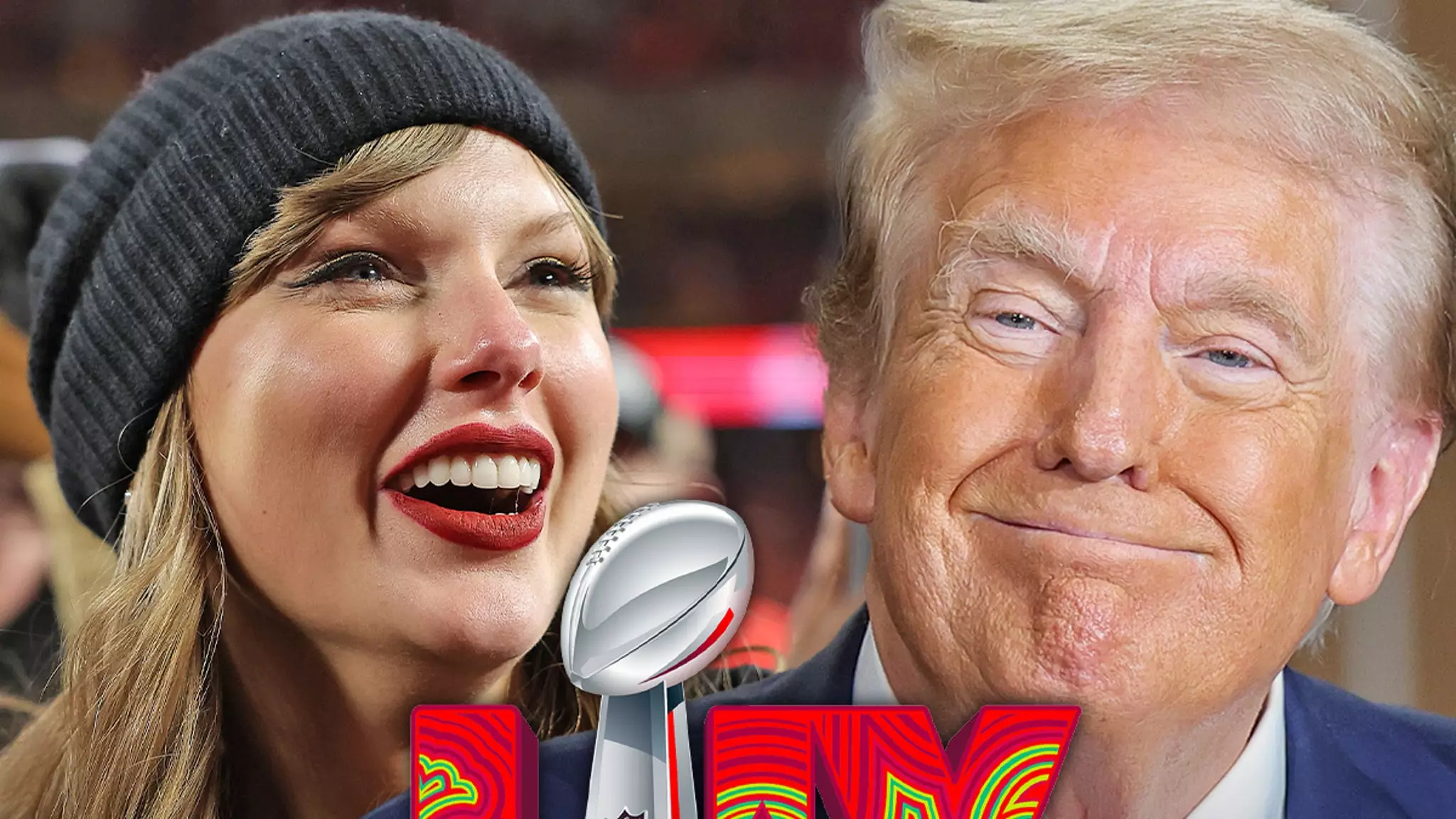The Super Bowl, a quintessential American event, has evolved beyond its origins as merely a football championship. Today, it stands as a cultural phenomenon where sports seem to intertwine seamlessly with celebrity, luxury, and social status. As fans gear up for the Big Game, it is palpable that many attendees’ motivations have shifted. While the action on the field is significant, it appears that fans are just as eager to catch a glimpse of their favorite celebrities, particularly in the context of current figures like Taylor Swift and President Trump.
It has been reported that individuals hoping to secure high-end suites are specifically targeting locations that afford them unobstructed views of these A-listers. This phenomenon indicates a change in perspective where the celebrity presence has become as crucial, if not more so, than the competition between the teams on the field. According to Mike Zandman, a prominent figure in the world of luxury hospitality, his clients seek to be near celebs more than ever, positioning them in a unique predicament. The desire for prime visibility is juxtaposed against the challenges of maintaining privacy and exclusivity for those stars.
The connection between sports and celebrity culture is nothing new, yet the current landscape is exceptionally influenced by personal relationships within the sports world. Taylor Swift’s relationship with Travis Kelce, a Kansas City Chiefs tight end, has become a significant talking point ahead of the Super Bowl. This coupling has catalyzed an increase in attention towards not just the game but to the entire Super Bowl weekend, changing the expectations from a traditional football finale to a spectacular showcase of entertainment. For Zandman’s clientele, Swift represents a “big draw” that has the power to reshape service offerings tailored to the celebrity-fueled audience.
For those fortunate enough to secure a place in the luxurious enclaves of the Superdome, the experience extends far beyond watching the game. Zandman emphasizes that attendees enjoy an array of high-end amenities—from tailored transportation services to fine dining experiences that suit even the most discerning palates. These offerings cater not only to sports fans but also to those engaging with the larger spectacle surrounding the Super Bowl. However, a striking observation made by Zandman is the noted decline in overall interest in the game itself compared to previous years. This surprising trend is attributed in part to the overwhelming dominance of the Chiefs in recent seasons.
Despite a decrease in conventional enthusiasm surrounding the competition, the allure of attending the Super Bowl remains unscathed. Even with tickets selling at discounted rates compared to previous editions, the sheer act of being part of this coveted event still symbolizes success and exclusivity. The blend of celebrity sightings, extraordinary hospitality, and top-tier social gatherings contributes to the appeal of the Super Bowl, making it not just a sporting event, but an extravagant cultural highlight. As we approach this year’s showdown, it will be intriguing to see just how deeply the intertwining narratives of celebrity and sport continue to influence public perception and participation.

